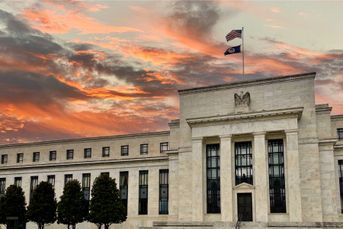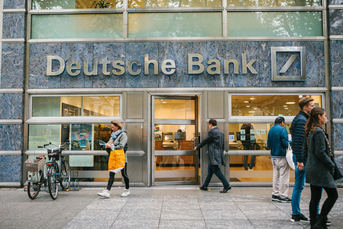JPMorgan Chase sued for charging ‘sky-high’ fees for crypto purchases
Bank gave no notice that it was changing policy to treat crypto buys as cash advances.
JPMorgan Chase & Co. has been sued for charging “sky-high” interest rates and fees to customers who used their credit cards to buy cryptocurrencies such as bitcoin.
Brady Tucker, a Chase credit card customer in Idaho, claims the bank in January began treating his cryptocurrency buys as cash advances instead of purchases, and charging him interest rates of as much as 30% a year and additional fees. The suit comes as an increasing number of credit card issuers are taking measures to limit or block cryptocurrency purchases.
Mr. Tucker’s suit cites comments by JPMorgan CEO Jamie Dimon last year calling bitcoin a “fraud” and threatening to fire any trader who bought or sold it for being “stupid.” Mr. Dimon later said he regretted those comments and wished he hadn’t dismissed the technology so broadly.
“It appears that in addition to firing its ‘stupid’ employees, Chase elected to start fining its ‘stupid’ customers: unilaterally,” Mr. Tucker said in his lawsuit.
Mr. Tucker is seeking class-action status for the suit filed Tuesday in federal court in Manhattan. He seeks a refund of all related fees plus $1 million in damages. Representatives of JPMorgan Chase didn’t immediately respond to a call seeking comment.
JPMorgan, Bank of America Corp. and Citigroup Inc. this year began to decline cryptocurrency purchases, fearing borrowers might not pay and that cardholders might dispute charges if they receive tokens that turn out to be fraudulent or illegal.
Mr. Tucker said in his complaint that he routinely made purchases of cryptocurrency through Coinbase, the largest U.S. cryptocurrency exchange, and other exchanges on his credit card and would pay them off by the end of the billing cycle without incurring finance charges. He said he and other credit card holders were “duped.”
“Chase silently smacked them with instant-cash-advance fees, plus much higher interest rates than normal, and left them without any recourse,” Mr. Tucker said.
He said he and others used their credit cards for cryptocurrencies because they were the only way to purchase them instantly, as buying them with a bank account number would require several days of processing. Mr. Tucker said the bank never notified him that it was changing its policies, which would have caused him to stop using the credit card for such purchases and avoid racking up fees.
CASH ADVANCES
The bank started treating the purchases as cash advances late in January and charged Mr. Tucker a total of $143 in fees and $20.61 in interest in January and February alone, according to the complaint. When he called the bank’s customer service line to complain, Chase blamed the costs on Coinbase, Mr. Tucker said.
In February, customers of Coinbase began complaining that their purchases were prompting hefty cash advance fees to appear on their card statements. The exchange publicly accused Visa Inc. and Mastercard Inc. of changing the exchange’s so-called “merchant classification code,” a move that prompted banks to treat card purchases on the venue as cash advances.
Visa and Mastercard have insisted there was no change in Coinbase’s code. Instead, they said, they merely clarified to banks which code they should have been using all along for transactions at cryptocurrency exchanges.
Learn more about reprints and licensing for this article.








